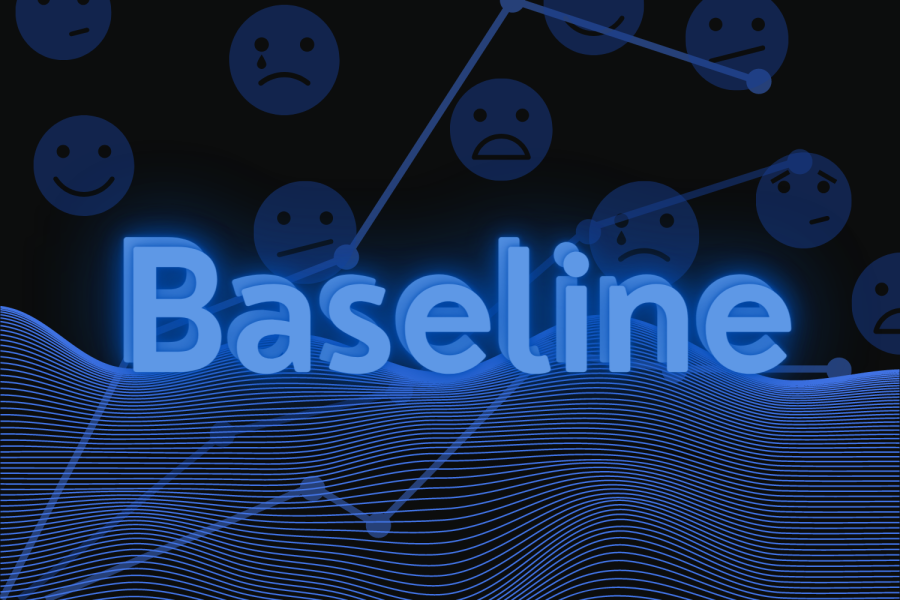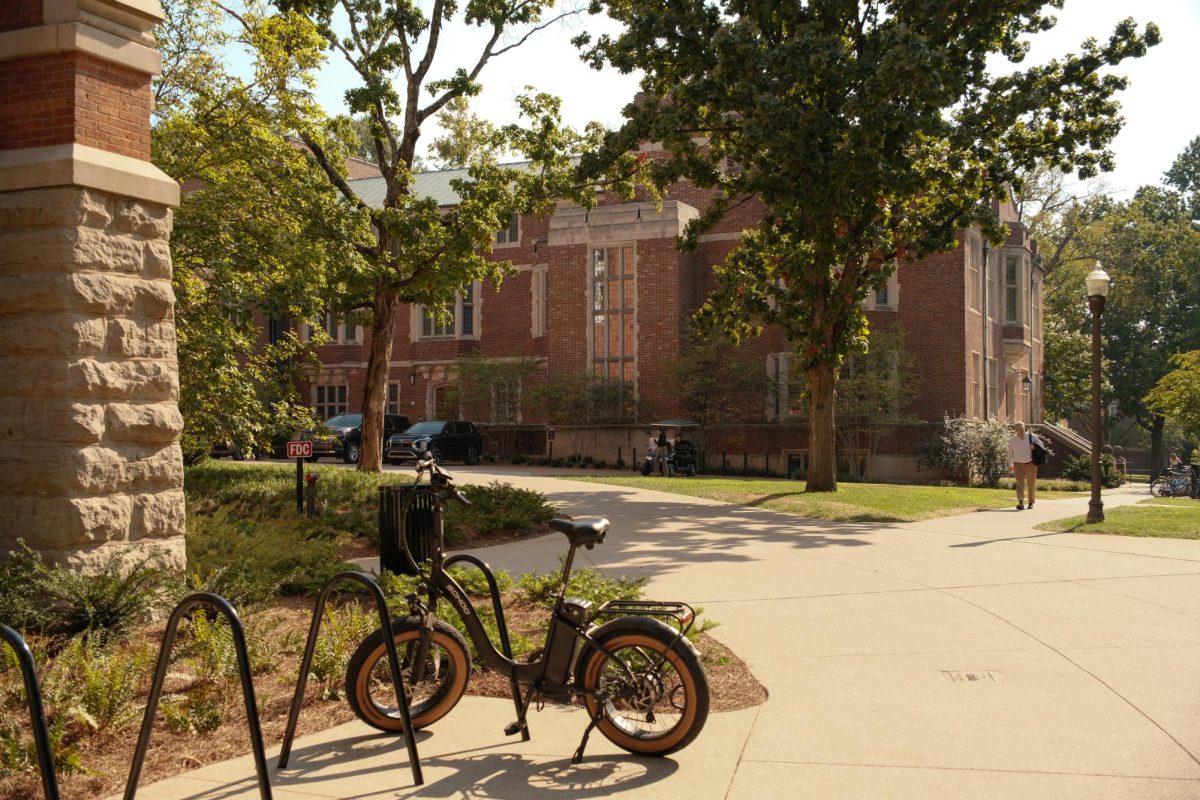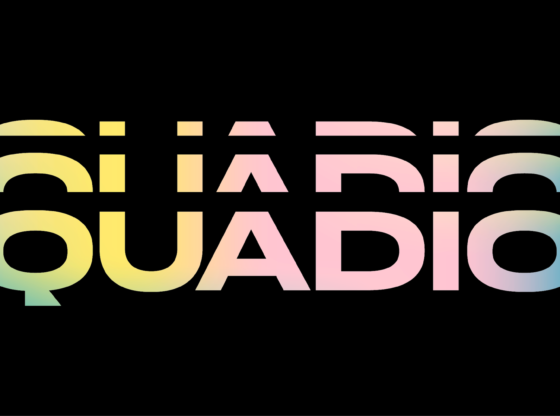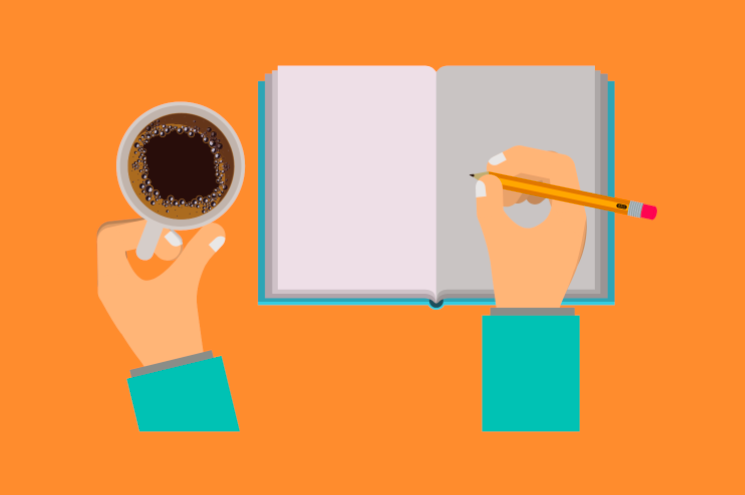Junior Nisala Kalupahana released Baseline, an app centered around journaling, mood-tracking and self-reflection on Aug. 24. Available on iOs, Android, and the web, Baseline has around 200 active users that use its platform for active journaling and mood tracking over time.
“What I find so impressive about it is the dedication behind it, junior and app user Sam Sliman said. “I’ve watched Nisala sink hundreds of hours into this project. And every little detail is optimized to help people improve their lives.”
Research and design
For Kalupahana, the idea for Baseline stemmed from the impact journaling had on him. Writing down his thoughts four times a day as a form of self-reflection helped lift him out of a difficult time. However, Kalupahana noticed that despite the benefits, people face many obstacles in keeping this habit: getting started, maintaining consistency in a physical journal, frustration in pinpointing the process of introspection and taking time to review previous entries. So, he decided to apply his computer science major to develop an app—Baseline—that aims to solve these issues for users.
Kalupahana said the process of creating Baseline began during the Fall 2021 semester when he noticed issues with the journaling app he was using.
“I started journaling with a different app. It wasn’t that great, and it had a lot of issues,” Kalupahana said. “I recommended it to a couple of other people, and they had a bunch of issues with it too. It just didn’t seem like there was something that was really good and designed specifically for journaling.”
He explained that many journaling apps incorporate too many features, which makes each individual feature inefficient in its functionality.
“The app I was using before had journaling, a mood tracking system, connections to therapists, meditation and mental health lessons. Because it was so generalist, everything it offered was substandard,” Kalupahana said. “So the first thing was identifying a specific problem that people were having and really figuring out how to solve that instead of trying to do everything.”
Once Kalupahana understood the gap in the present products available for journaling, he set out to address this in his new design. He began storyboarding, which he said involved creating drafts of what different parts of the app would look like and then created this design through code.
“Piece by piece, I built it up, showed it to other people to get feedback and eventually got it to a place where it was complete enough that I could have other people use it,” Kalupahana said.
Baseline basics
Baseline provides three basic functions: journaling, mood tracking and intervention.
“When you make a journal entry, it asks you to rate your mood from -5 to 5, where -5 is the worst you could feel and 5 is the best you could feel,” Kaluhapana said. “So there’s in-the-moment interventions where if you log a -5, it will show you a crisis page, and try to get you to reflect for a minute.”
Kalupahana said he wants users to not only be able to reflect on how they are feeling in the moment, but also to look back on how they’re feeling over time. Kayla Megerdichian, a sophomore at the University of California, San Diego, is a member of this group and expresses the importance of their role as beta testers. Megerdichian believes this is a particularly useful tool within the app.
“It’s a cool concept and different from other mood-logging apps that I’ve tried,” Megerdichian said.“The journaling aspect makes me actually think about why I’m feeling a certain way when I log, and I’m not usually aware of my mood as I go about my day so getting reminders to check in are a nice way to reflect on how I’m feeling.”
The app also incorporates interventions through a system called “weekend review,” where every Friday users receive a survey that assesses different aspects of their mental health, such as depression, stress and anxiety. It also looks for signs of users’ possible eating disorders, and abusive relationships, all through psychometric screenings backed by research.
“[The surveys] cycle, so every month or two you’ll have completed all of them. If it identifies that you have a problem in one of those areas, it will give you resources and try to help you,” Kalupahana said.
Before the app was released, these screeners were evaluated by a beta team—a group of 50 target audience users that provide feedback on the app’s various functions. Per Megerdichian, new screeners will also be evaluated by the beta testers.
“The app has two weekly screeners, and he asks us what we think he should include and if he’s missed any important ones—like, he added screeners for domestic abuse and violence,” Megerdichian said. “When he introduces new ones [screeners] he asks the betas for feedback on our results and if the screeners seemed accurate, or if we see anything buggy before they go public.
Larger impact
Kalupahana’s hope is for Baseline to reach as many people as possible.
“Firsthand, I’ve seen what a big difference this has made in my life. And I’ve heard of people using this thing for everything from break-ups to dealing with eating disorders,” Kalupahana said. “And these stories are really heartwarming, all the things that people are able to work through with this system.”
Kalupahana said he’s also been speaking with local news channels and is working to run ads on social media to spread the message.
“If you want to work on your mental health, journaling is a really good way to do it. I think Baseline is a great place to start for a lot of people,” Kalupahana said.








